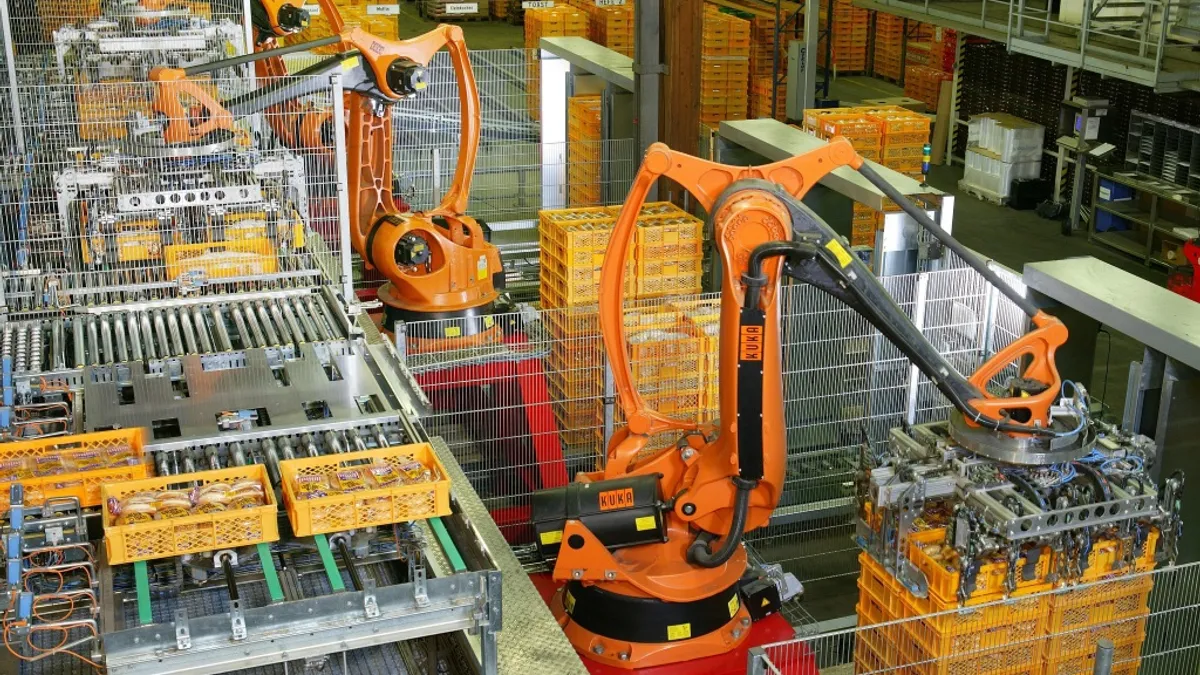Dive Brief:
- CFOs are increasingly focused on the benefits of automation within supply chain functions as they exit the initial shock period of the coronavirus pandemic, according to a survey of 288 U.S.-based CFOs and financial leaders conducted by PwC during the week of May 4 and released Monday.
- Thirty-four percent of financial leaders surveyed plan to leverage automation to improve the speed and accuracy of decision-making within their supply chains. — up from 26% two weeks ago in the prior edition of PwC's biweekly survey.
- "Companies lost response time during the crisis, and they did not get all the data they needed to make informed decisions around, for example, spending, taking pricing actions to move excess stock or identifying opportunities to shift their mix of offerings," reads the report.
Dive Insight:
Automation is on the minds of executives across sectors as they look for ways to diminish disruption from future crises or even subsequent waves of COVID-19, PwC U.S. Chairman and Senior Partner Tim Ryan said on a call with media.Thirty-seven percent of CFOs are planning to accelerate automation across functions.
"The initial shock of the virus and its effect on the business community is over. And we're seeing a real shift among executives around focusing on what they can control," Ryan said.
But in the supply chain, CFOs plan to apply automation to improve agility — a quality 72% of CFOs said their organizations expect to develop as a result of the pandemic.
PwC expects to see a focus on automating data collection and analysis regarding supply chain effectiveness, Amity Millhiser, PwC vice chair and chief clients officer said on the call. Despite the possible influx of automation in response to the coronavirus, PwC also predicts supply chain management skills will be more in demand.
Using supply chain performance as an indicator of resiliency, and not merely cost management, combined with a new awareness of the value of supply chain management talent could shift training priorities, according to PwC.
Likewise, a recently released report from McKinsey found the pandemic will lead to a dedicated risk management function within many supply chains.
"Working alongside the manufacturing, procurement, and supply-chain functions, these units assess vulnerabilities across supply nodes and apply robust risk-mitigation frameworks to address those vulnerabilities," according to McKinsey analysts. Digitization will help organizations create this new function without incurring prohibitive costs, the analysts wrote.













